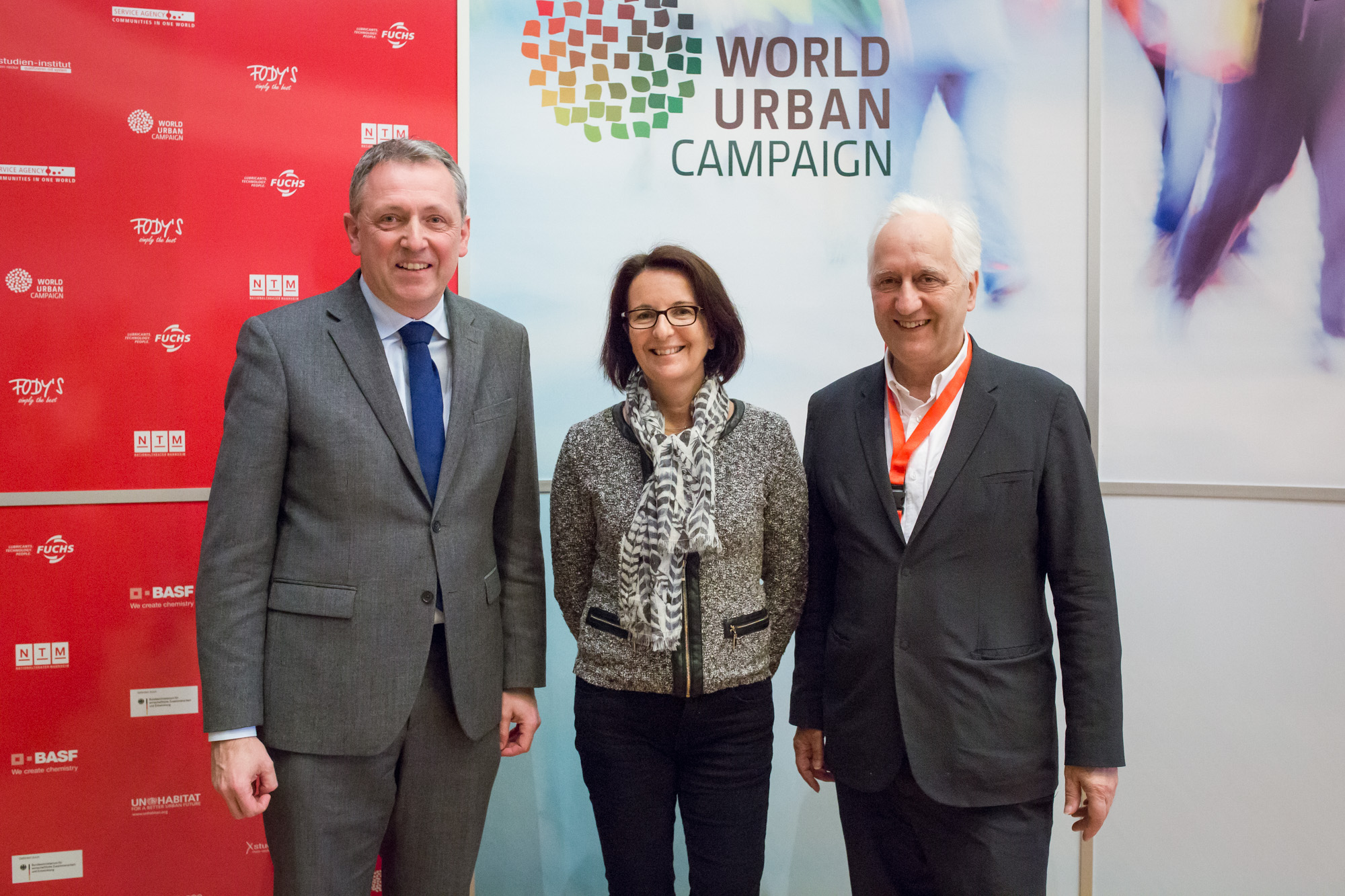The three-day Urban Thinkers Campus of the United Nations ends with a “Mannheim Manifesto”. The cities shall play a greater role worldwide and receive the necessary financial support. With this demand the three-day Urban Thinkers Campus “Urban Citizenship in a Nomadic World” of the United Nations in Mannheim comes to an end today.
In a “Mannheim Manifesto” the vast majority of the approximately 480 participants are committed to ensuring that in the cities of the future the participation of citizens is significantly increased. “We need a change of policy from the top towards greater participation from the bottom,” said the researchers Cities Charles Landry, who has guided the attendees through the campus. Further, the participants of the Mannheim conference advocate that people living in cities should be granted their own “citizenship” with all rights and responsibilities – regardless of their status. “People want to be a part of a city, and not only live in it,” said city researcher Benjamin Barber. Thus will strengthen the urban identity.
In addition, the diversity of people in the cities shall be accepted as a reality and an opportunity. This is the only way to manage upcoming challenges such as the current refugee crisis. The Manifesto is now being developed.
The conference is part of a partnership with the World Urban Campaign of the settlement program of the United Nations (UN Habitat). The core focus is the current international migration and its importance for the life in the cities. The Mannheim Urban Thinkers Campus is one of 26 events worldwide, which allow a joint contribution of non-governmental partners to Habitat III Conference of the United Nations. It is the only event in Germany with this focus and – in addition to Paris, Stockholm, Palermo, Barcelona, Geneva and Alghero – one of seven events of its kind in Europe.
The results of the Mannheim event will be directly integrated into the “New Urban Agenda” of the United Nations. The agenda will be adopted in October in Quito / Ecuador and serve as policy guidance for global urban development in the next 20 years.
“The Urban Thinkers Campus has strengthened Mannheim’s role as an international city”, states Lord Mayor Dr. Peter Kurz, as a positive summary of the event. That is apparent not only in the participation of representatives from seven partner cities. The conference also gave the city the opportunity to share its experience in the process, which will eventually lead to a new agenda for the world’s cities.
“Diversity is a reality in our city,” says the mayor. “This will also be taken into account in the planning of new neighbourhoods that arise on the former US bases.”
Mannheim has a 400-year tradition as a tolerant and cosmopolitan city. This, the mayor hopes, will also be reflected in the agenda of the United Nations. The conference in Mannheim helped the city’s international recognition and visibility. “Cities need to cooperate with each other way beyond their borders,” said Benjamin Barber. To survive the global challenges, they would have to join an international alliance of cities to support the national government.
This could strengthening the democratic legitimacy and participation. However to contribute to the solution of global problems, cities also need to receive the necessary financial resources.
“Mannheim has been a very active research laboratory for the future of cities” praised Christine Auclair, coordinator of the World Urban Campaign at the UN campus, which was held under the motto “The city we need”.
“In Mannheim there is a strong sense of homeland, which is based on openness and tolerance,” said Auclair further. “Mannheim lives integration that requires creativity and ensures the future of the cities. Such a dedicated discussion, focused on finding broad agreement, wouldn’t have been possible anywhere else but here in Mannheim.”
.

Recent Posts
- Experts internationaux et nationaux,(Conakry, Guinée et à domicile), DATE DE CLOTURE: 30 juin 2019
- Call for Expressions of Interest to Host the Global Water Operators’ Partnerships Alliance Secretariat
- EoI – URBAN PATHWAYS – Supporting Low Carbon Plans for Urban Basic Services in the context of the New Urban Agenda
- Sierra Leone hosts stakeholders meeting on New Urban Agenda and WUF 10
- Declaration of the First Global Stakeholder Forum of the First UN Habitat Assembly
Archives
- June 2019
- May 2019
- April 2019
- March 2019
- February 2019
- January 2019
- December 2018
- November 2018
- October 2018
- September 2018
- August 2018
- July 2018
- June 2018
- May 2018
- April 2018
- March 2018
- February 2018
- January 2018
- December 2017
- November 2017
- October 2017
- September 2017
- August 2017
- July 2017
- June 2017
- May 2017
- April 2017
- March 2017
- February 2017
- January 2017
- December 2016
- November 2016
- October 2016
- September 2016
- August 2016
- July 2016
- June 2016
- May 2016
- April 2016
- March 2016
- February 2016
- January 2016
- December 2015
- September 2015
- April 2014
- December 2012
- March 2012

